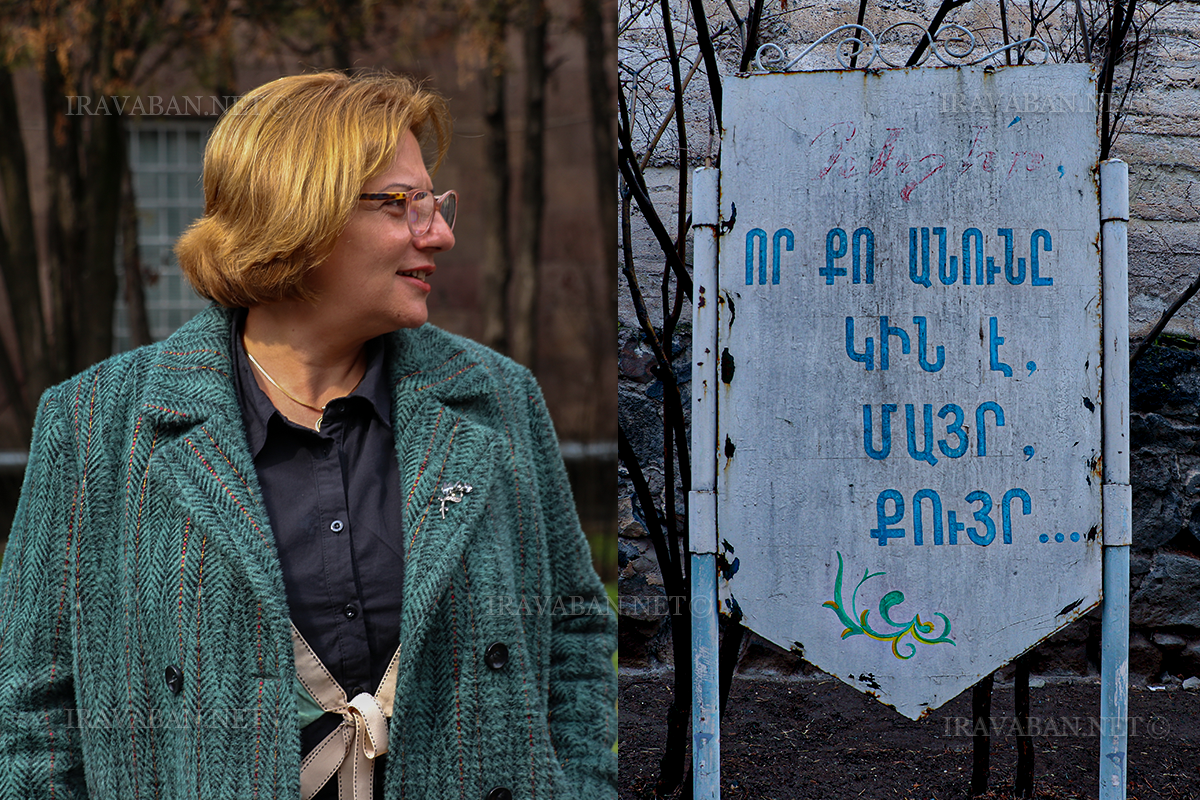According to the order of Justice Minister Grigor Minasyan dated 30 January, Heghine Martirosyan was appointed the temporary head of the “Abovyan” Penitentiary Institution.
Iravaban.net spoke with Martirosyan about the problems in the institution, the conditions of keeping women and minors, the violations recorded by the Office of the Human Rights Defender and her service.
– Ms. Martirosyan, it is mentioned in your biography that you worked in school as a teacher for about 8 years. How did you come to work in a penitentiary?
– I graduated from the university in 1993, those were very difficult years for the country, and there were not many jobs. My school, which I graduated from, immediately invited me to work. I worked for 8 years. In the 2000s, wider opportunities opened, there was an opportunity to change work. I wanted to change my field and came to the penitentiary quite by accident. It is not like I had a purpose. I got a job in “Yerevan-Kentron” penitentiary. This is how came to penitentiary and served for many years.
– How did the family accept your decision to work in the prison?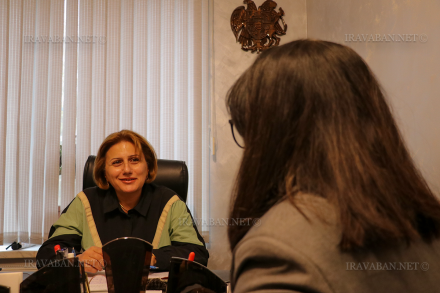
– For me, family and work are very separate. I am very scarce of talking about my work to family and friends. I have always been an independent person, my family learned about my work quite late, and when they learned about it, it was already a fact. They did not imagine the nature of my work well. And my shift to “Abovyan” penitentiary, it was smooth, I had already been a servant for many years.
– You said that for a long time the family members didn’t know where you work, and didn’t they ask?
– Well, they knew that I work in the NSS building and that was all.
– Can we say today that the purpose of the penitentiary is not to punish, but to correct human behavior?
– Yes, I can definitely say. The Criminal Code clearly defines the goals of punishment. Punishment has three goals: to restore social justice, to prevent crime and to re-socialize the punished person. This third point is entirely within the domain of the penitentiary system. Re-socialization assessment commissions were created to carry out large-scale rehabilitation and reintegration work with convicted persons. Re-socialization has many components. For example, the implementation of rehabilitation programs, educational work with minors, providing convicts with work, higher education, ensuring contact with the outside world, and we carry out these works. That is why appropriate rooms, libraries, and auditoriums are created in the institutions, so that people can return to society changed. I think the punitive policy has completely changed.
– Does the circumstance of being a teacher in the past help in contacts with detained persons, in work?
– You know, it helps a lot. By working as a teacher, a person becomes more patient, the ability to listen develops. And then it becomes a habit that when you say something to people, you also try to explain why you say it so that the person understands. In that sense, yes, the work of a teacher has made me more patient and calmer. I do not make a decision immediately, I think and then decide.
– Is there much need for patience and being calm here?
-Yes of course. It is such a job that you should be able to listen and analyze. After all, every person is an individual. It is true that we, there are services that we show everyone the same approach, for example, security, everyone should be searched, but other services also require an individual approach, for example, psychological, social, legal. It should be individualized, it requires patience. It is not right to make a decision immediately.
– You also worked in “Yerevan-Kentron” Penitentiary Institution. How do the “residents” of these and other correctional facilities treat a female correctional officer? What are the differences?
– Very common and very normal. There are quite a lot of female employees in the system, I am not the only one. It is a very relaxed approach, I never felt that they discriminated. I didn’t feel it at all in “Yerevan-Kentron”. We have many good female servants in the system. In the course of time, we reached the point where everyone accepts it as normal.
– What advice would you give to women who want to enter the service in this system?
– In order to work in the system, you have to be very strict with yourself. The regime is in the first place here. You should always be in place and not be late. You must love this job. You have to admit that you are serving the Republic of Armenia. Women should understand where they are going. And have responsibility in themselves.
– How did the detainees in the “Abovyan” penitentiary react to the news of your appointment as the head of the penitentiary?
– Reactions were normal. The male bosses do not work badly either. Only in our case, in communication with the female manager, the detainees can talk about their health problems in details, for example, and explain better. They can talk about their emotions, family problems, and children. You cannot reveal such topics with a man. I also think that there are questions that I can understand better. I think that there is no difference in the rest of the issues.
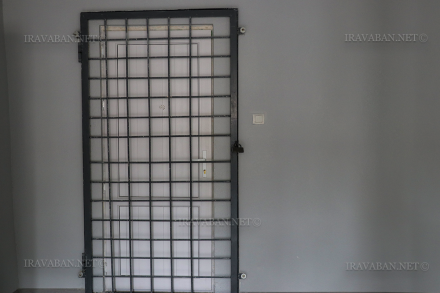 – Let’s talk about the problems in the system. The “residents” of the penitentiary often talk about the difficulties of receiving medical care. For example, there are no doctors on duty in the prison after working hours. What steps are being taken to solve these problems?
– Let’s talk about the problems in the system. The “residents” of the penitentiary often talk about the difficulties of receiving medical care. For example, there are no doctors on duty in the prison after working hours. What steps are being taken to solve these problems?
– You know, the medical department is quite a large unit. That SNCO is under the Ministry of Health. We have three doctors. One is a general practitioner, a gynecologist, a dentist and five nurses, who also stay around the clock. Doctors are in place until 7-8, and even more if necessary. And in case something happens at night and a person needs medical assistance, we immediately work with emergency aid. If there are doctors, the position of it will be filled, it is not just that doctors come to work in this system, we also have a problem with specialists, even if the places are not filled, it is not only our fault. People do not stay, they come and then leave work, but health is in the center of attention. I assure you that the convicts are not left unattended for a single minute. The nurses are in place, the medicine is inplace as well. But yes, we do not have a doctor on duty. The positions are filled in now. That issue is not within the domain of the Ministry of Justice. I would also like to have a night shift duty. We have repeatedly applied to the Ministry of Health, we are cooperating. Medical issues are always discussed together.
– The Human Rights Defender’s Office recorded in 2022 that the building conditions of the penitentiary are very inadequate. What steps have been taken in this direction?
– We have started big works. Not only here, but throughout the system. In particular, the place where minors are kept has been thoroughly renovated, which should become a place where convicts are kept. The re-socialization part has been completely renovated again with beautiful classrooms. We have almost completed it, we have already brought some property. It is planned to completely renovate the administration building. The place to keep the detainees is also being planned. The whole area should be improved. It is quite a big project that after the finalization of the “Abovyan” prison, it should meet European standards in the near future. We want women and minors to be in good condition.
– What kind of problems do the women who are kept in the detention center speak about?
– Well, you know, the most important problem for an Armenian woman is the family. These people are far from their families, they are in trouble. About health problems, so that they can be healthy and go to their families. The problems related to their criminal cases are related to those that have not yet been convicted, or the cases are in the stage of preliminary investigation or trial. There are problems with household and storage conditions, but they are lighter problems that we fix on the spot, they do not become big problems. Their biggest problem is being in prison.
– Nowadays, March 8 is considered more in the context of femininity and beauty, but the basis is women’s rights. To what extent are the rights of women in Armenia of the 21st century, especially women held in prisons, protected?
– I think that women’s rights are protected in the Republic of Armenia. Additionally every person should be able to defend his rights. The Constitution stipulates that a person has the right. Regardless of whether the subject of the right is a woman or a man. They have clearly defined rights in the penitentiary that are protected, and about which we inform them from the first minute when a person appears in prison. We present their rights and responsibilities. I believe that emphasis should be placed on raising the educational level. The more educated you are, the better you understand your rights and get to the point where you do not violate someone else’s rights. I think that, in addition to awareness, it is also very important that we now pay a lot of attention to their education so that they can protect their rights. This moment is very important and now we are moving in that direction, that education is very important in all places.
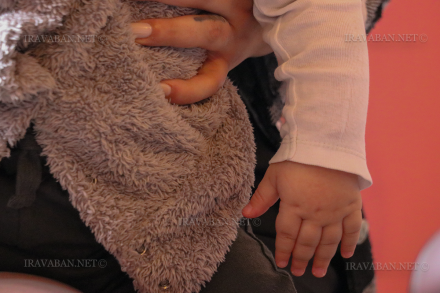 – Are there convicts whose children are in the penitentiary with them?
– Are there convicts whose children are in the penitentiary with them?
– We have two people, one is a convicted person, and the other is a detained person. One of the children is a 10-month-old boy, the other is a 7-month-old girl. Both were born here. We have one pregnant woman.
– In the above-mentioned report of the HRD, it was recorded that the cells or shelters intended for detained persons and convicts who are pregnant or have children under three years, as well as the toilets and bathrooms adapted for the latter, are missing. What is the state of the institution in this regard currentyly?
– Now it is completely renovated. We have renovated the place where minors are kept. There are three cells for pregnant women and mothers with children up to three years old. We installed boilers, there is constant hot water in the cells. Now one is occupied, there is a 28-week pregnant woman there, and another woman with a child is there as well. We plan to build a playground for children. Large-scale construction is underway. The children are healthy, there is no problem with food.
– How many convicted persons exercise their right to education, how is the process organized? And how many are working?
-Education is organized by “Center for the Implementation of Legal Education and Rehabilitation Programs” SNCO under the Ministry of Justice. People aged 19+ can come and graduate from the high school. We have aesthetic courses. Now we have 6 people enrolled in public education. 3 are minors. Three women who want to get a high school certificate participate in 19+ general education. We also have a girl, she is a graduate, and she is finishing high school, now she is taking exams. I met her, she said, Comrade Martirosyan, I got 7, and she was so happy. At that moment, I thought I was at school again, I went back to those years. There are three aesthetic courses: sewing and design basics, ethnography and communication skills. They really need communication skills. Because these women, no matter what we say, are a vulnerable group and these subjects are very good for them. Now 10 convicts are involved in these educational programs. We have psychologists, lawyers, we are aware of all their problems. 14 convicts are working now. Those who are in the middle security zone can work. People work part-time or 0.75 percent. This is due to the fact that they have many lessons and do not manage to do all. They mostly do cleaning work and get paid. Let me tell you, they are even able to send money home from that work.
– How many minors are currently kept in “Abovyan” prison?
– We have two minors, there is one who has turned 18, but she is involved in public education and we still keep her here. We can keep those with positive characteristics up to the age of 21. We have 5 male representatives, 2 are minors, and the others have turned 18, but are not yet 21 years old. Fortunately for us, there are very few minors now. With this new Criminal Code, which has increased the types of restraints, minors are now detained in very extreme cases. At the moment, we do not have a minor girl arrested or convicted.
– In the context of the fight against the criminal subculture, can you indicate whether there are similar manifestations in the “Abovyan”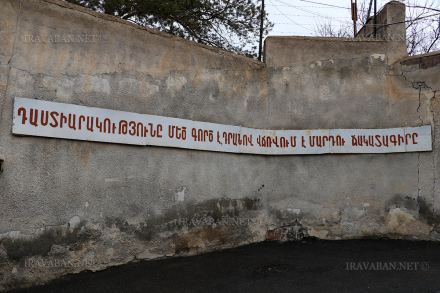 prison?
prison?
– Rumors, myths. It is the result of people’s imagination and stupid serials that make films without specialists and consultants. Nothing like this happened in “Abovyan” penitentiary. There are no privileged persons in this institution, but within the framework of the policy adopted by the country, which is a fight against the criminal subculture, in any case, we carry out preventive explanatory work with everyone. I think it is the result of people’s exaggerated imagination.
– Are attempts to transfer prohibited items often recorded? Were attempts to transfer unusual items to convicted or detained persons?
– There are no penetrations in this institution, women’s demands are completely different. It is possible that some forbidden, but not extraordinary, thing may be found during the year.
Hasmik Sargsyan
Photos by Lusine Hakobyan

